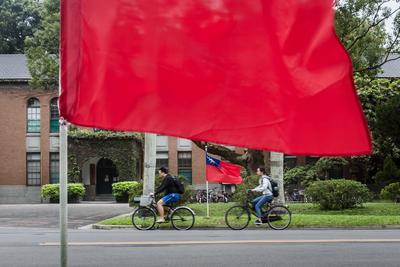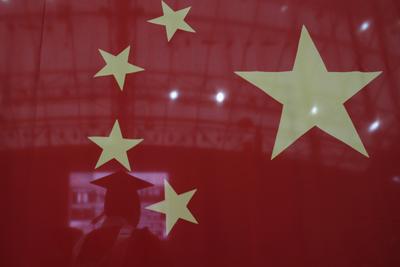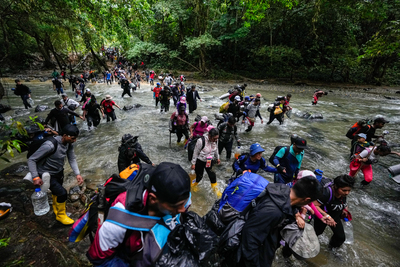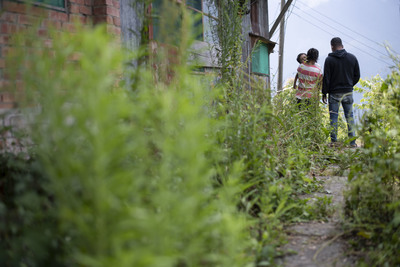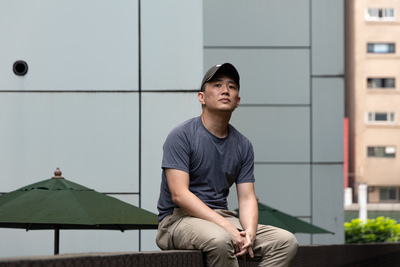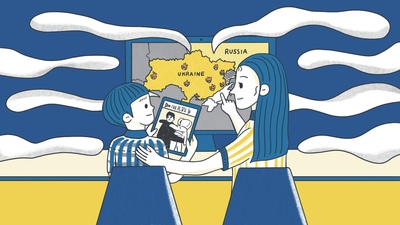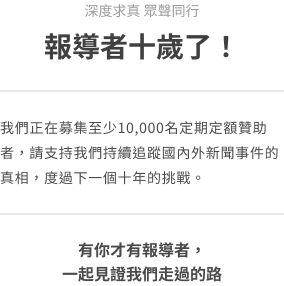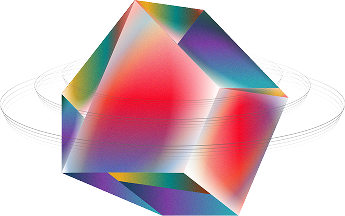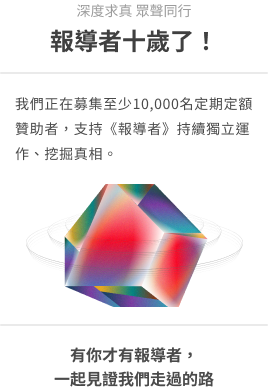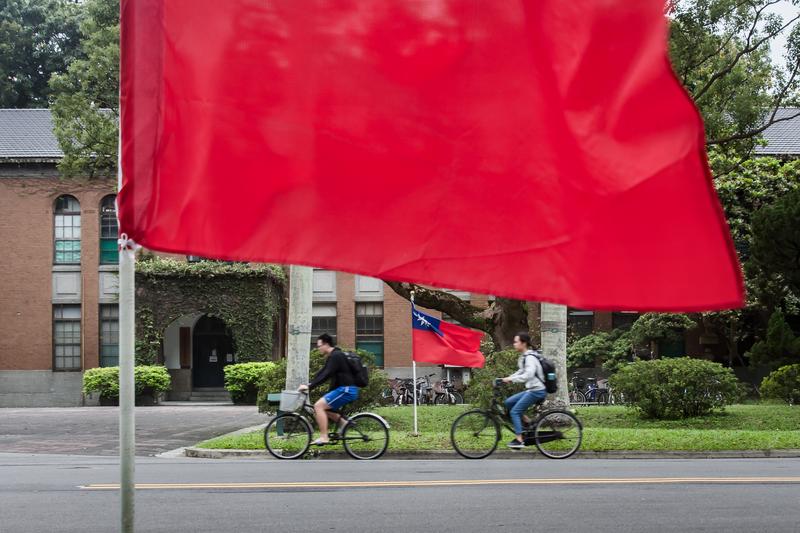
When the first wave of lusheng (陸生) “Mainland Chinese students” stepped into Taiwanese campuses in 2011, they were expected to bridge the gap between young generations of Taiwan and China. One decade later, however, these young people find themselves trapped in increasingly tense and tangled cross-strait relations. From the 2014 Sunflower Movement, to the pro-democracy movements in Hong Kong since the mid-2010s, to pro-independence Taiwanese president Tsai Ing-wen’s first election in 2016 and re-election in 2020, civilian interactions between Taiwan and China have become more and more puzzling, as Chinese youth’s nationalist fever growing while Taiwanese society’s skepticism toward China deepening.
For lusheng, the COVID-19 pandemic materializes the political and psychological pressures from both sides of the Taiwan Strait under the name of “disease control”: border closures, travel restrictions, and quarantine. As a result, lusheng are once again caught in between the longstanding Taiwan-China political struggles.
2021 marks the tenth anniversary of the first wave of lusheng enrolled in Taiwanese universities. However, it might also mark the end of their decade in Taiwan. China’s Ministry of Education has decided to suspend the enrollment of Chinese students in Taiwan beginning in fall 2021.
(All the interviewees in this article used aliases.)
After eight months of uncertainty, more than 7,000 Chinese students studying in Taiwan—once denied entry to the country because of COVID-19 border restrictions—were finally allowed to return to campus. However, the countdown to their student life began as soon as they set foot in the Taiwan Taoyuan International Airport. Starting from this year (2020), Beijing will no longer allow new students from China to pursue higher education in Taiwan. Lusheng might disappear from the Taiwanese higher education scene in the upcoming years, at least for a short period of time.
A Chinese student who planned to apply for a master’s program in Taiwan asked China’s Education Ministry to publicly explain its latest change in policy. This student was told that the answer was unavailable “for national security reasons.” Another respondent recalled that before their trips to Taiwan, they received warnings from Chinese officials asking them not to participate in politically sensitive issues. Yet eventually, they came to realize that “lusheng itself is the political.”
The Instruction was broadly questioned by the lusheng community. A few lusheng immediately launched a petition. They received 5,693 replies in 24 hours, including 4,641 from registered lusheng.
Two major questions were raised with regard to the Instruction. One concerned the principle of equity: among all arrived travelers departing from China, only lusheng were required to process a centralized quarantine at designated locations while others were only asked to quarantine at home. Another question revolved around the possibility of cross-infection: the Instruction allowed colleges lacking sufficient quarantine facilities to put their quarantined students in shared facilities—including shared bedrooms and washrooms—so long as each bed was placed at least one meter in distance and a panel screen was installed between each bed.
On January 27, based on the responses received, petition launchers issued a letter of advice to the Ministry of Education and CECC. The letter called for the termination of discriminatory policies against students from China; the protection of their rights to education; and the cancellation of either the policy related to “a 14 days entry suspension” or the policy concerning “a 14 days centralized quarantine.”
Lusheng had never organized themselves so actively and extensively. Approximately 3,000 to 4,000 lusheng joined a policy-specific WeChat group, dividing their labor to discuss strategies related to petition, information, mental health support, and more. Each college had responders to help collect responses from fellow students. They contacted news outlets and invited their professors and friends from Taiwan to submit op-eds to raise public awareness of their situation. They also set up a Facebook page, The Concern Group for Lusheng Facing COVID-19, to update their efforts and actions. At times, when particular students became agitated by hostile comments such as “Chinese students should go home,” students who were more experienced in organized actions would recommend them to remain patient: “Don’t engage in self-pity. To secure mutual understanding and sympathy from the Taiwanese public, we need to frame our argument in terms of reason, policies, and laws.”
The strategy of lusheng activists was to call for public support from Taiwanese academic circles and online civil society. Taiwan International Student Movement (TISM), a trans-campus organization that had worked hard to support lusheng in the controversy concerning their National Health Insurance status, launched a petition with other non-government organizations and college faculties to “demand the Ministry of Education and the Center for Disease Control (CDC) to modify their discriminatory policies related to centralized quarantine.” Through mutual collaboration, organizations including the National Students’ Union of Taiwan, Taiwan Association for Human Rights, and Taiwan Association for Promoting Public Health published statements urging the government and universities to make further adjustments and clarifications in terms of their quarantine regulations.
At the same time, the epidemic in Wuhan was worsening day by day. The CECC announced the suspension of all Chinese nationals travelling to Taiwan from February 6. For the first time since the 1980s—following the shift from military confrontation to peaceful communication between both sides of the Taiwan Strait—Taiwan completely closed its borders to travelers from China.
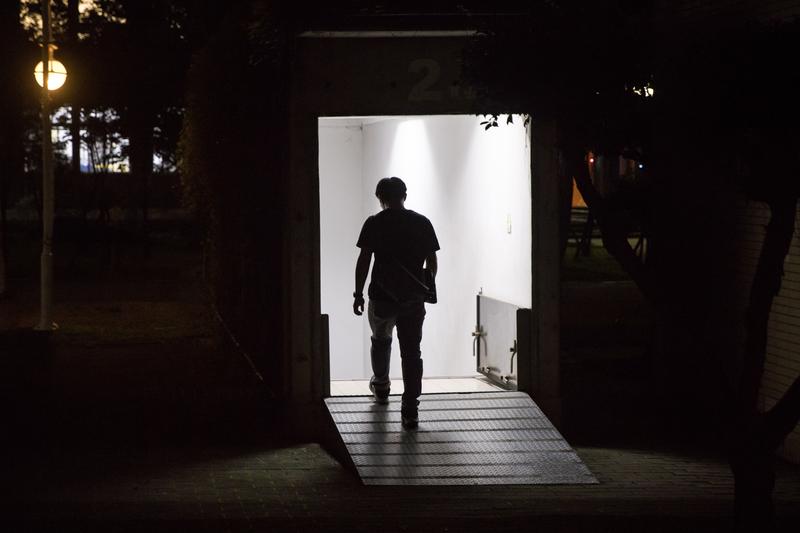
In February, as more and more countries tightened their border restrictions and mandatory centralized quarantine policies to travelers departing from high-risk places, the calls for Taiwan to reopen its border to the 7,000 lusheng became increasingly unrealistic.
CECC’s “deployments in advance” (超前部署) strategy earned Taiwan considerable time and space to prevent the spread of the virus domestically. As of late October, there were approximately 45 million confirmed cases and more than a million death from COVID-19 globally; Taiwan, however, is widely praised for its extraordinarily low number of confirmed cases.
Closely neighboring China and having experienced the 2003 SARS epidemic, Taiwan remains cautious regarding the infectious disease outbreak in Wuhan. Multiple narrative strategies and perspectives were adopted by Taiwanese news outlets and public opinion to picture Taiwan’s treatment of the epidemic: some conveyed a sense of confidence in terms of how Taiwan’s image of progress could earn international support; some were more pessimistic in tone, highlighting Taiwan’s lack of recognition from international organizations. At the same time, the pro-democracy movement in Hong Kong as well as the escalating tension between the U.S. and China further provoked the existing anti-China sentiments in Taiwanese society. Added to these factors, the Democratic Progressive Party (DPP)-led government’s reliance on public opinion to secure its rule further complicated lusheng’s eventual return to their campus life.
Wang Ke chose to stay in Taiwan to write his graduate thesis instead of returning home to China during the Lunar New Year vacation. Social distancing during the epidemic helped him concentrate on his writing. When he took walks at a nearby park, Wang was casually asked by children playing at the park who identified his Chinese accent: “Are you from Wuhan?” Wang felt amused when some of these children ran away immediately while his companions tried to clarify for him: “He’s not contagious!”
While Beijing stridently denounced Taipei’s restrictions on lusheng, it showed little interest in helping lusheng return to campus. Since February, the Taiwan Affair Office of the State Council (TAOSC)—the government agency responsible for drafting and implementing China’s Taiwan-related policies—had incessantly criticized the Taiwanese government for “damaging lusheng’s basic rights.” Referring to some Taiwanese NGOs’ calls for anti-discrimination, Xinhua, China’s state-owned news agency, denounced the DPP administration for “agitating anti-China sentiments through the epidemic.” On April 9, China’s Ministry of Education unexpectedly declared the suspension of Chinese students’ applications for enrolling in Taiwanese higher education institutions in the 2020-21 academic year.
A student who was planning to study for a master’s program in Taiwan submitted a letter petitioning China’s Ministry of Education to publicize the legal basis for the suspension and release documents related to the decision. The official response went: “Access is restricted since classified information is involved.” A WeChat public account called “Never Let Lusheng Go” posted a statement: “Not only did [China’s] Ministry of Education’s decision damage the rights of would-be lusheng who are heading to Taiwan for higher education; it also exacerbated the existing difficulties lusheng are facing.” This public account was instantaneously blocked for “violating ‘the Regulation on Information Service for Internet Users’ Public Accounts.’”
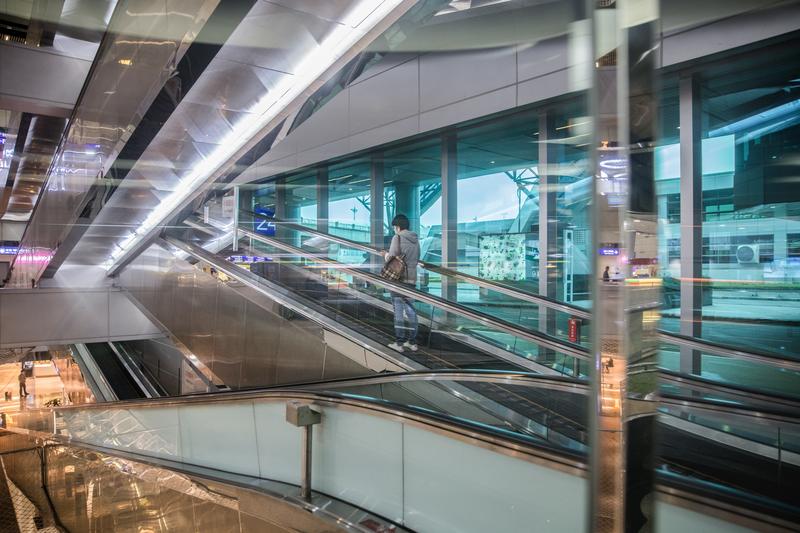
In early September, lusheng Taozi has returned to her daily life on campus, spending her time either in the dorm or the library after finishing her fourteen-day quarantine. She voiced her disappointment:
"[At first] I was fine with their decision that lusheng could not return to Taiwan. I thought it was normal and understandable why the Taiwanese government had to make this decision. I agreed that returning lusheng should follow the tightened quarantine regulations. Although I felt that the “panel-screens isolation'' were kind of ridiculous, I wouldn’t have described them as discriminatory. Then the epidemic broke out, and the whole world shut down, and I had to adjust to taking remote courses from home. In June, the epidemic in China was under control, but Taiwan maintained its restrictions on Chinese students while allowing students from 19 other countries who are going to graduate this year to enter Taiwan. This is unacceptable. Why not just admit that Taiwan doesn’t trust China’s statistics? Why do they need to hide their political concerns and bias under the guise of epidemic control? And now it’s the “U-turn.” Now they don’t even bother pretending. These were the two decisions that really disappointed me."
The second decision was what created the so-called “U-turn” (髮夾彎) incident. On August 5, Lio Mon-Chi (劉孟奇), Taiwan’s deputy Minister of Education, announced plans to reopen the border to all non-Taiwanese students enrolled in Taiwanese higher education institutions. During his briefing, however, Mr. Lio was asked by his staff to leave the conference room for a few minutes. When he returned, Mr. Lio declared that “lusheng will be excluded from the reopening since there are ongoing concerns about the Taiwan-China affairs.” Later, the cabinet’s Mainland Affairs Council (MAC), the agency that implements and manages Taiwan’s China-related policies, announced that China was obstructing the return of lusheng: only less than 20 Chinese students had returned to Taiwan since July 22. According to MAC, since China was incessantly “setting political obstacles [in matters concerning lusheng],” the Taiwanese government will “keep an eye on the development of the epidemic and cautiously consider the timing to loosen restrictions.”
When asked to clarify who decided to remain the entry restriction to lusheng “[out of] concerns about the Taiwan-China affairs,” Prime Minister Su Tseng-Chang (蘇貞昌) did not directly respond and instead emphasized that “it is the government’s duty to protect the health of our fellow citizens.” Jin Fu, a TISM member, pointed out that it must have been “some top-level official” who made the decision: “The agency responsible for lusheng’s return is the Ministry of Education, but this time, MAC [came on stage and] expressed their concerns. These two agencies are parallel in terms of their power structure, so it’s unlikely that they were struggling over each other. However, the discussion in the cabinet meeting is close to public knowledge and we don’t exactly know who is responsible for this decision.”
It is true that Chinese agencies, especially those of governmental sections, have been exceedingly wary of terms like “national” when handling Taiwan-related issues. TAOSC refused to accept any documents—admission letters, enrollment certificates, or any documents with university stamps—that refer to Taiwanese institutions as “national.” For an extended period of time, Taiwanese university administrators and students struggled with TAOSC’s inflexible demands. In the end, both tacitly agreed to replace “national” with “public.” However, lusheng responses demonstrated that wording did not hinder their travel document application in China. Many stated that they had their travel permit extended without problems. A student from Fuzhou shared his experience: the government staff used a blank paper to cover up the word “national” on documents issued by his university, had the document photocopied, and processed his application as usual.
Meanwhile, Taiwan has become increasingly sensitive about word choice. In an interview, Xiaobai, a student from a Taiwanese national university, stated that while helping out with the preparation of a Chinese visiting scholar’s immigration documents in January, his university’s International Affairs Service insisted that any documents submitted to China’s Taiwan affair-related agencies must include the term “national” whenever the name of the university is mentioned. Struggles over sovereignty were fought over a term used on an A4 sheet of document. This precisely revealed the multiple restrictions imposed on the civic exchanges across the Strait.
In mid-August, MAC clarified that Taiwanese government agencies were working their best to secure lusheng’s return to campus before the start of the new semester. Finally, the Ministry of Education announced that it would permit all Chinese students to enter Taiwan on August 24—212 days after borders closed all of a sudden.
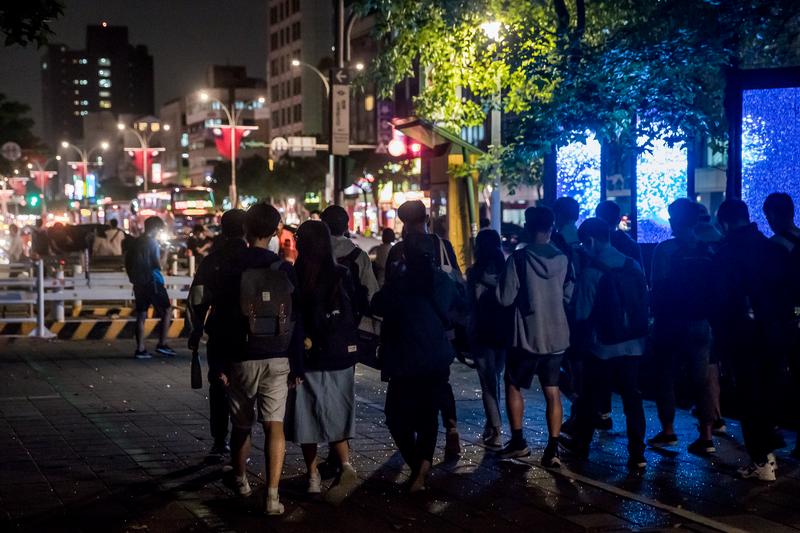
Lusheng was not the only community that had organized action demanding the right to return to campus. Hong Kong students shared and collected information and responses through a Facebook page titled The Concern Group for Hong Kong Students’ Return to Taiwan. A group of Indonesian students petitioned for their return to campus, too. These different student bodies took actions in pushing forward their diverse agendas.
The majority of TISM members are students from Malaysia, Hong Kong, and China, with a certain level of participation from Taiwanese students. Most of the members pursue degrees in the humanities and social sciences. Mandarin Chinese is the major language with which they communicate. “We operate as a non-hierarchical group and make our plans collectively,” said Jin Fu. “We hope to collect support from scholars as well as activists from various trends of social movements. We want to unite and work with Taiwan’s civil activists to facilitate and accelerate all non-Taiwanese students’ return to Taiwan.”
Did student activities manage to effectuate changes in terms of the government’s policy making? Jin Fu admitted that it is difficult to make measurement of success, especially with regard to the situation facing lusheng. Their earlier advocacy work surrounding centralized quarantine in January was not successful because Taiwan closed its border in a few days after their actions were launched. However, Jin Fu argued that the success or failure of a movement should not be measured by singular issues. The movements for the protection of non-citizens’ rights seem diverged but are in fact interconnected. For example, social movements advocating migrant workers’ rights and protection are becoming more visible in Taiwanese society thanks to many years of effort and mobilization; their gradual progress will shape public opinion on issues related to non-Taiwanese students. The lusheng community is always encountering challenges due to the complexity surrounding Taiwan-China relations and identity politics in Taiwanese society. While faced with doubts and criticism, lusheng’s actions—open letters, petitions, and even protests—attracted media attention. These actions did manage to exert pressure on governmental agencies and thus their influence should not be underestimated.
Taozi, too, agreed that taking action was necessary. In her estimation, it was the first time that the lusheng community had united—at least to a certain degree—and had taken various unprecedented strategies to communicate with the Taiwanese government and society. However, she observed that many of lusheng were still inexperienced in getting involved in this kind of activities; furthermore, they did not fully grasp how social movements and civil advocacies could be organized.
The protracted battle over entry restriction had frustrated many lusheng activists, gradually eroding their passion and sense of active participation. They still shared information, complaints, and casual conversation in their 500-member WeChat group. Some of them felt betrayed when they realized that their conversations were screenshot and exposed on news outlets; other members chose to leave because they were disappointed with the growing conservative environment within the group.
When interviewed about his experience, Leung Tze Kit, a student from Hong Kong, told me that Hong Kong students, whose immigration status is “alien resident”, were allowed to self-isolate at home and enjoy a NT$1,000 (CA$48.1/US$35.7) compensation per day during their quarantine. In contrast, lusheng, who could not enter Taiwan for months, were not qualified to apply for ARC (alien resident certification) nor compensation. They had to spend large sums of money to quarantine in Taiwan. “It’s not only about political prejudice but also related to administrative procedures. So many government agencies are taking charge of different aspects of lusheng affairs; the level of confusion involved in policymaking is not at all surprising, given the inefficient communication between different branches of government agencies.”
From mid-2019, the emergence of the pro-democracy movement in Hong Kong had consolidated the Hong Kong and Taiwan coalitional politics against China’s “one country, two systems” policy, creating a rift between the Hong Kong student and lusheng bodies in Taiwan. In 2020, Hong Kong applicants to Taiwanese universities grew by 50 percent from the previous year. In contrast, the number of applicants from China significantly decreased as a result of the Chinese government’s boycott and negative media coverage.
Leung responded that the divergence between the lusheng and Hong Kong student communities “deepened since the ‘U-turn’ incident.” When lusheng mobilized themselves to denounce Taiwan’s politicization of disease control policies, The Concern Group for Hong Kong Students’ Return to Taiwan publicly announced its support to the Taiwanese government: “We believe the Taiwanese government’s policies are necessarily made out of professional concerns and we do not have the right to intervene. We understand the difficulties [the Taiwanese government] is facing.” Leung commented that:
"There is no transparency in China’s disease control and thus the statistics they offer may be questionable. Meanwhile, it just doesn’t make sense that the Chinese government denounced Taiwan for using 'discriminatory' terms like 'Wuhan Pneumonia' when Hubei residents were being discriminated against in China."
Leung added:
"It’s more difficult to protect the rights of lusheng when divergence in public opinion exists. Social media might also not serve as an ideal platform for conversation; the situation could worsen if unthoughtful claims are made."
The Promotion Group for the Return of Lusheng is more inclined to seek the Taiwanese public’s sympathy and understanding through moderate means of persuasion. In some cases, their concerns contradicted those advocated by TISM. When TISM was calling for financial support from the government to help alleviate lusheng’s spending on quarantine hotel accommodations, The Promotion Group expressed their willingness to completely follow the government’s disease control policies so that lusheng could return to campus as soon as possible.
Regardless of their efforts to engage in rational conversations with the public, both the Promotion Group and TISM faced struggle over verbal confrontations. Anti-China or even xenophobic comments found a frequent presence on their Facebook page. Meanwhile, some Chinese Internet users screenshot their posts and accused lusheng of “coordinating with external hostile powers.” Jin Fu felt frustrated with the situation:
"Do we lusheng have no choice but to take a particular stance? There should be an alternative discursive space beyond the frame of nation-states. We want to create this space wherein national identity is not the only concern."
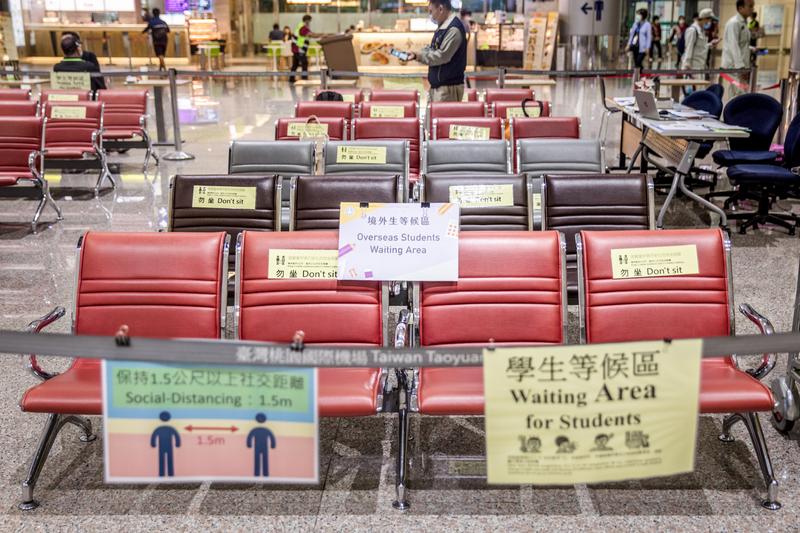
Except Hong Kong and Macau, for now only four cities in Mainland China—Beijing, Shanghai, Xiamen, and Chengdu—have direct flight service to Taiwan. Airline companies would receive a name list with the information of every lusheng entering Taiwan on a particular day; boarding passes were printed only after airline staff had verified the name list and the passengers’ documents. The list was exclusively made by Taiwanese agencies to avoid any unexpected changes on passengers embarking on a particular flight. A last-minute change on the passenger list was exactly what happened in February when the Taiwanese government tried to evacuate its citizens from Wuhan and caused a series of controversies in Taiwan.
Then, it came to immigration inspection. After reviewing the travel documents, the Chinese immigration officials would ask: “Are you sure you want to go to Taiwan during the epidemic?”
In Taiwan, multiple strategies were employed to establish a rigorous disease control system. In the Taoyuan International Airport, a separated “students’ waiting zone” was demarcated at the empty arrival hall. Arriving students were repeatedly reminded by university staff that they “cannot leave the waiting zone unless they want to use the washroom”. In addition to university administrative units, the CDC and local district offices also kept close contact with the incoming lusheng. Through a Line bot “Disease Containment Expert,” CDC sent daily messages in a friendly, calming tone, reminding quarantined individuals to check their body temperatures and report any symptoms. Once travelers finished the online registration upon arrival at the airport, their mobile phone must be turned on continuously. Travelers’ mobile phones were linked to the police report system through cell sites; once the phone signals could not be detected, police officers would visit the quarantined traveler immediately.
According to TISM, each lusheng spent approximately NT$30,000 to 45,000 (CA$1,442 to 2,241/ US$1,067 to 1,600) on average for a 14-day quarantine, which is almost equivalent to university tuition and fees for a domestic student in one semester. Some hotels raised their accommodation prices when they learned there would be large amounts of students returning to Taiwan. At the same time, Taiwan’s Tourism Bureau terminated hotel subsidies for foreign travelers and visitors on October 1. Therefore, those who were allowed to return after October 1 needed to spend even more to quarantine. Only a handful of universities offered subsidies or dormitory rooms for lusheng to quarantine.
Having experienced the full process of arrival and quarantine, Taozi felt sympathetic for the staff of her university who took charge of lusheng affairs because they bore pressures from various agencies—the CDC, Education Ministry, the university’s high-ranking administrators, and lusheng and their parents. “Lusheng’s back-to-campus experience is very much determined by university administrators’ attitudes. When government sectors were trying to avoid actions, it’s up to a few university staff of the overseas student division to shoulder the responsibilities.” Taozi called on her lusheng fellows to be more tolerant and sympathetic towards university staff.
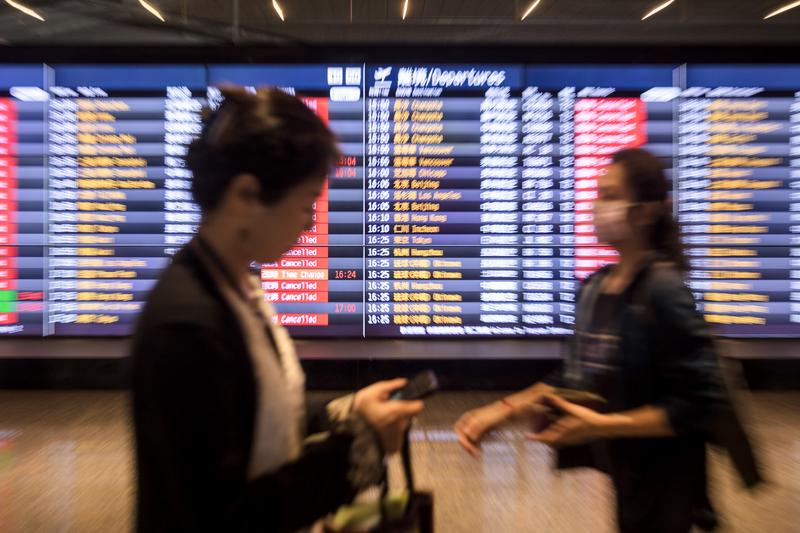
Wang Ke finished his graduate thesis and returned to his home in China in September. When he arrived in China, Wang accepted two PCR tests, which were not required in Taiwan. Wang did his quarantine at a hotel located in a major city, yet the expenses for accommodation only cost half as much compared to that in Taiwan. From his arrival and quarantine hotel experience in China, Wang found that most staff he came into contact with were from the public security section; they did their jobs orderly and efficiently, albeit with an air of stiffness. “In our group of quarantined individuals, there was an old gentleman who wasn’t’ able to take care of himself but was required to quarantine alone instead of with his family. This man doesn’t even have a cell phone, and it took him a long time to key in his personal information. In the end, he spent four or five hours on the quarantine bus and couldn’t even use a washroom. I think the quarantine practices could be more flexible here.”
While lusheng engaged in heated debates with Taiwanese officials, Taiwanese students enrolling in Chinese universities (a.k.a. taisheng, 台生) chose to remain silent, though they were not without their own complaints. Chen You-Sheng hesitated on whether he should return to his university until just a few days before the new semester began. Chen pursues his Ph.D. degree at a university in southern China. He told us that the university seldom contacted him except by sending automated messages demanding students to report their body temperature on a daily basis. When the epidemic in China was put under control, Chen received a message from the university asking students “to do their best to return to campus.” It confused him. “Now, there is no direct flight service and costs of the flight are three times higher [than in pre-pandemic time]. If I make a layover in a third country, will I have to be quarantined there? And then I will need to quarantine when I arrive in China. And if I return to Taiwan during the following winter vacation, there would be another round of quarantine. I will eventually end up paying nearly NT$100,000 (US$3,546) for quarantine.” Chen was hoping that the university could take into account the difficulties facing taisheng and offer sufficient means of support.
For taisheng, the reality facing them was not as promising as what China’s “benefiting Taiwan campaigns” propaganda seemed to have proclaimed. In recent years, China’s government-funded fellowships for foreign students have mostly been directed towards countries participating in the Belt and Road Initiative. On the other hand, Chen’s university does not offer fellowships for “Hong Kong, Macau, and Taiwan students.” Coming from a modest family background, Chen once struggled to be granted the stipend enjoyed by Ph.D. students with Chinese nationality. In the 2019 “Measures for Further Improving the Cross-Strait Economic and Cultural Cooperation” (a.k.a. “the Twenty-Six Measures 26條措施) issued by TAOSC, the Chinese government has promised that “Taiwanese students who hold Residence Permit for Taiwan Residents are allowed to apply for funding packages equal [to students of Chinese nationality].” However, the staff of Chen’s university told him that they could not offer him additional funding until further discussions were made. The distinctions between propaganda and practices revealed the flaws of China’s attempts to “unite” taisheng.
In the past decade, lusheng and taisheng travelling across the Taiwan Strait witnessed the demise of Taiwan-China relations: taboos proliferated while spaces for civic exchange shrunk. Lusheng also experienced changes in their mindset: their thorny trips to Taiwan left a scar on their psyche that was difficult to heal. Under the Taiwanese government’s slogan—“Controlling the Disease is like Fighting an Enemy,” many lusheng students could not help but feel that they were those “enemies” to be struggled against. At the same time, China’s domestic public opinion of Taiwan was becoming increasingly negative, widening the psychological distance between lusheng and the Taiwanese society.
Meanwhile, Beijing’s policies were getting more unpredictable. In a few years, there might no longer be lusheng studying in Taiwan. What can be expected, however, is that interaction across the Taiwan Strait will gradually decline. Where lies the future of the Taiwan-China relation?
(To read the Chinese version of this article, please click: 2020陸生返台實錄:走進桃園機場的那一刻,開始倒數計時)
深度求真 眾聲同行
獨立的精神,是自由思想的條件。獨立的媒體,才能守護公共領域,讓自由的討論和真相浮現。
在艱困的媒體環境,《報導者》堅持以非營利組織的模式投入公共領域的調查與深度報導。我們透過讀者的贊助支持來營運,不仰賴商業廣告置入,在獨立自主的前提下,穿梭在各項重要公共議題中。
今年是《報導者》成立十週年,請支持我們持續追蹤國內外新聞事件的真相,度過下一個十年的挑戰。

